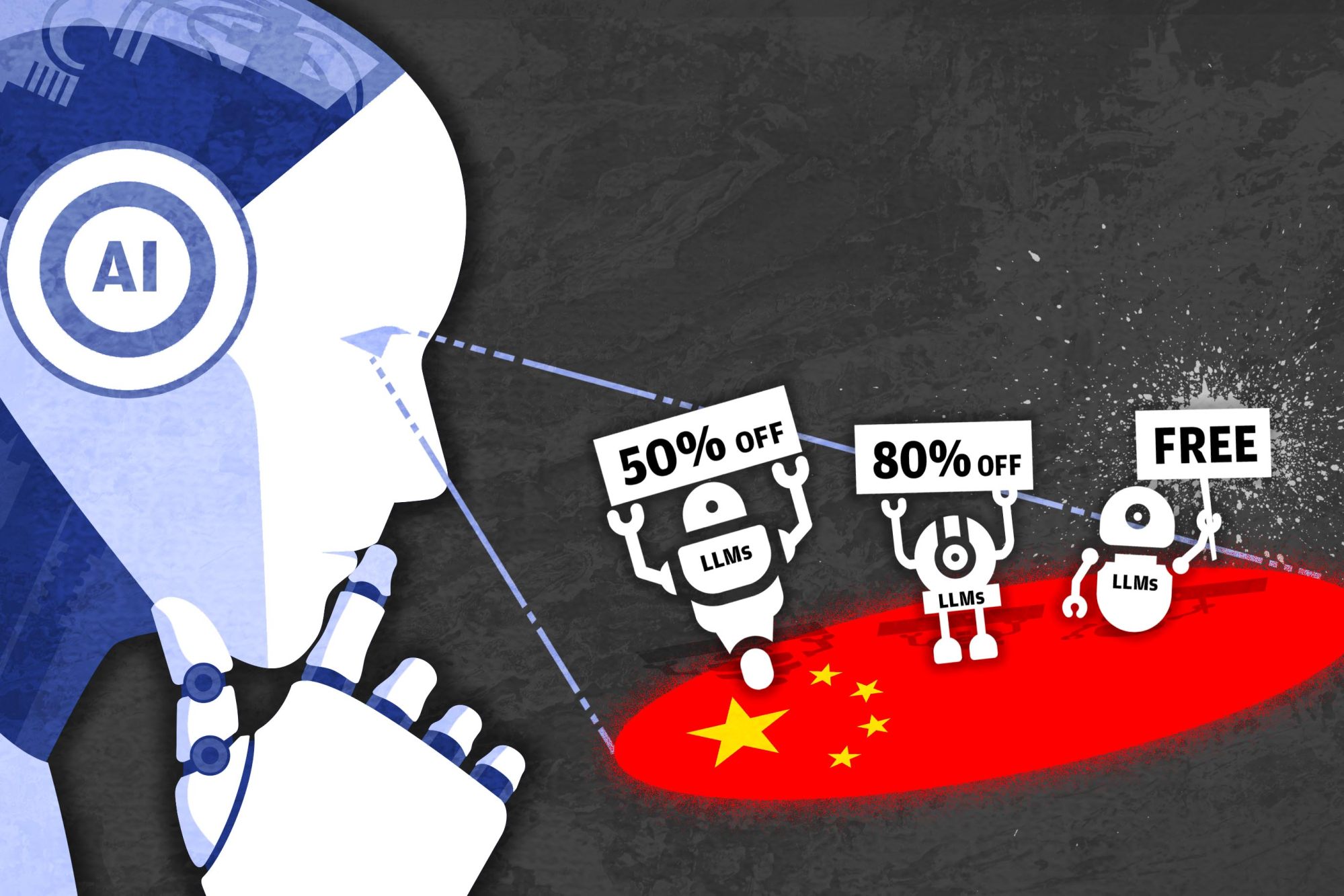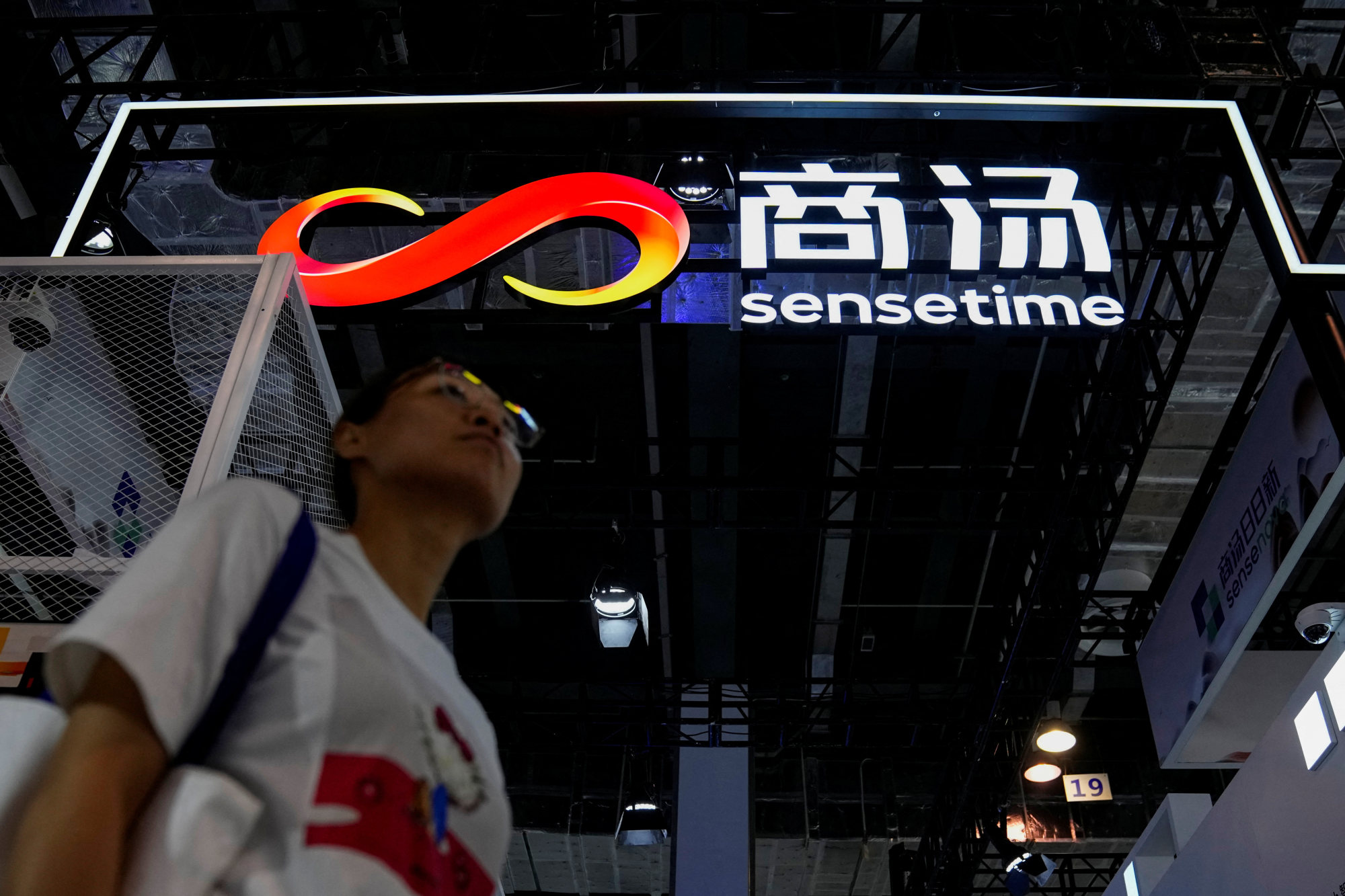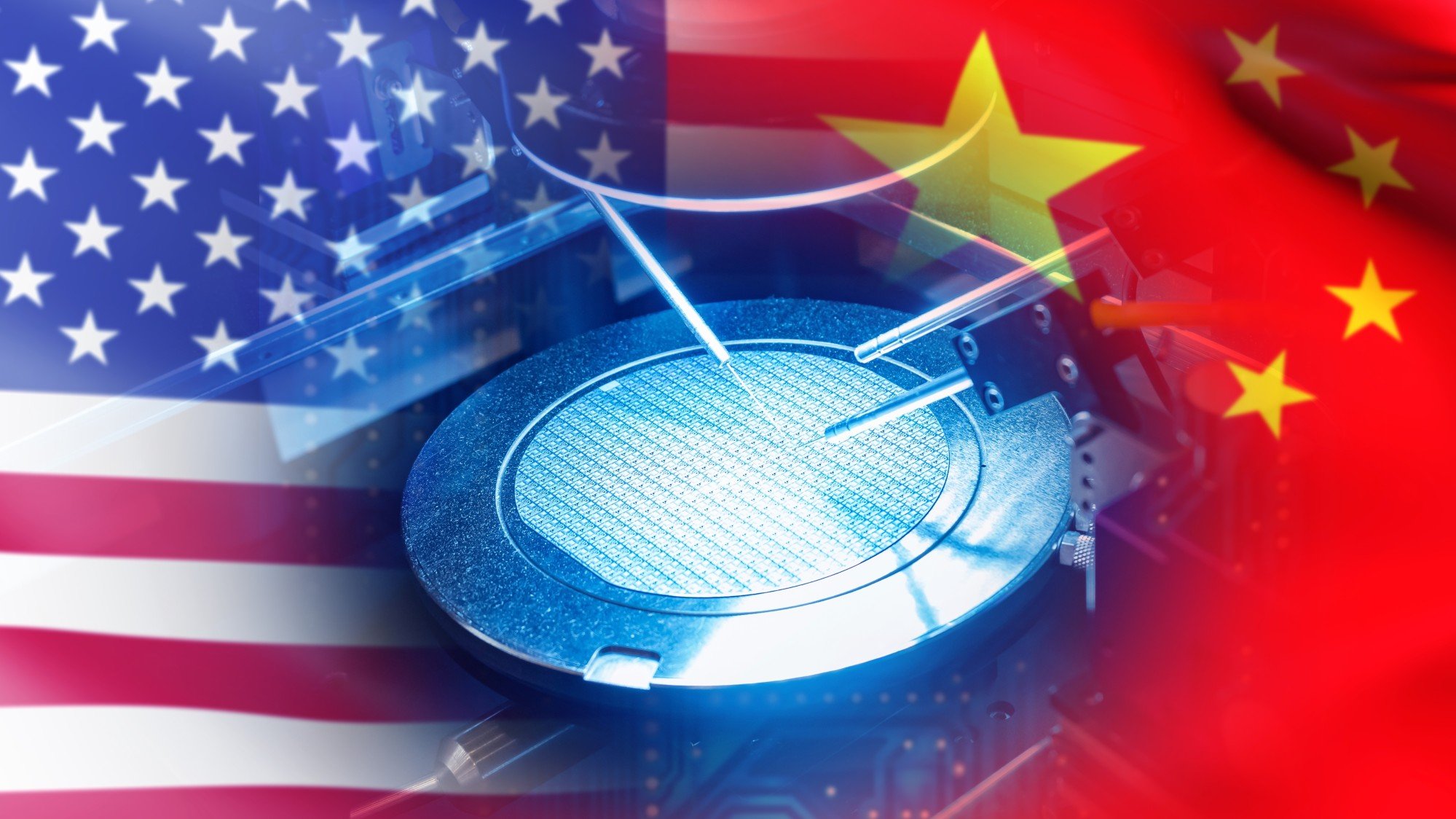China risks falling behind in the AI race, but can a cutthroat price war balance the scales?
Instead, Chinese companies are left competing on the one thing that has ravaged so many tech markets before it: price.
Some companies such as Baidu have pointed to improving efficiencies in running the energy-intensive models as the reason behind the price reductions.
This poses a challenge for Chinese AI firms without access to the bleeding edge of semiconductor production. Reuters reported that some Chinese AI companies are downgrading their chip designs just to get access to some of the manufacturing capacity of the world’s leading chip maker, Taiwan Semiconductor Manufacturing Company.
China’s chip champions are scrambling to eke out whatever performance gains they can with equipment stockpiled before the US further escalated sanctions last year.
They’ll still be able to build very large systems by aggregating many of those chips together
Nvidia is trying to hang on to the bits of the Chinese market that do not need the most cutting-edge tech.
“They’ll still be able to build very large systems by aggregating many of those chips together,” he told Wired in February.
This, of course, means forgoing the power-efficiency gains from newer chips, and the lower costs associated with that.
If price reductions in China really are entirely the result of efficiency gains, then everyone in the market is winning – consumers, third-party service providers and the AI companies themselves.
But given the Chinese tech industry’s history of price wars, things could get cutthroat while tech firms burn through cash.
Scepticism is already starting to emerge as industry insiders and outsiders alike question the true value of these AI systems that are known for often generating false information and derivative work that requires a lot of editing.
“I think there’s a very good chance that we’re going through a bubble right now, and that reflects excessive optimism about what AI is going to deliver,” he said.
60-Second Catch-up
Deep dives

New AI, old tricks: price war engulfs Chinese tech firms large and small
The price of AI services in China plummeted in May after ByteDance kicked off a price war by pricing access to its LLMs at 99.8 per cent below GPT-4
Industry insiders fear the harm could be fatal for many start-ups, but app developers are enjoying cheaper access to the tech powering their services
In the 18 months since Microsoft-backed OpenAI launched ChatGPT, Chinese tech firms large and small have rallied around a singular goal – besting the San Francisco-based start-up with their own Chinese-language chatbots.
The results have been mixed, with some tech giants claiming to have better results than GPT-4, OpenAI’s most advanced model, with Chinese queries. But with a deluge of more than 200 Chinese large language models (LLMs) – the tech powering these chatbots – from a slew of companies all jostling for market share, China’s AI firms can claim at least one other clear, albeit less boastworthy, advantage over their US counterparts: price.

Economist Paul Romer sees AI as hype, FDI real path to growth
AI is ‘going through a kind of a bubble right now’, the Nobel Prize-winning economist said, suggesting limits to the tech’s capabilities could soon set in
The US and China should compete in foreign direct investment, but projects like Belt and Road must focus on sustainable areas like real estate, he said
“The growth of digital technology hasn’t in the past ushered us into this new era of much more rapid productivity growth, and I doubt that it’s going to do it now,” Romer told the South China Morning Post on the sidelines of the UBS Asian Investment Conference in Hong Kong on Tuesday. “So I think the perception that somehow everything has changed is like the perception that cyber currencies are going to change the world.”

Hong Kong-listed SenseTime aims for profit in 2 years on generative AI frenzy
The company has set a goal of 100 per cent growth for its generative AI business this year, CEO and co-founder Xu Li told the Post in an interview
SenseTime has explored opportunities outside its traditional AI business, including smart city and smart business solutions
SenseTime, one of China’s artificial intelligence (AI) pioneers, is aiming for profitability within the next two years as revenue from its generative AI business tripled last year, and is expected to become the company’s new profit engine, according to CEO and co-founder Xu Li.
Hong Kong-listed SenseTime reported revenue of 1.184 billion yuan (US$163.4 million) from its generative AI-related business for 2023, marking a 199.9 per cent year-on-year increase, according to its latest annual financial report.

Elon Musk deepfake crypto scam highlights risks to Hong Kong
The Securities and Futures Commission has warned of a fraudulent crypto trading platform called Quantum AI, a long-time scam that uses deepfakes of Elon Musk
Hong Kong has proven particularly susceptible to AI-related scams, with fintech industry fraud growing 3.8 per cent in the first quarter
In its public warning on May 8, the SFC said that Quantum AI makes claims of being able to earn “too-good-to-be-true” returns and the regulator made a request to the Hong Kong Police Force to block access to related websites and social media pages. The linked domains were inaccessible as of this week, and the Facebook groups appear to have been removed.

Hong Kong’s film industry is turning to AI. Where do the humans come in?
With realistic virtual locations, there’s no need to fly actors, crew to different places for film shoots
Some veterans aren’t convinced AI can fix a stagnant film industry stuck with stale plots, same old faces
Roger Proeis is in Tseung Kwan O, in Hong Kong’s New Territories, and walking around a cavernous railway station unlike any in the city.
The station, complete with ticketing machines, escalators, seating areas and advertising billboards, is fake. The video producer created the whole set-up within his 5,000 sq ft studio using artificial intelligence (AI).

China’s 4 new ‘AI tigers’ emerge as investor favourites
Baichuan has joined a club of domestic unicorns focusing on generative artificial intelligence that include Zhipu AI, Moonshot AI and MiniMax
Known as the ‘four new AI tigers of China’, the start-ups have raised money from domestic tech giants, venture capitalists and state-backed investors
A group of artificial intelligence (AI) start-ups are emerging as China’s best hopes for reaching the frontier of ChatGPT-like technology, as they draw increasing attention from users and investors.
Among them, Baichuan is the latest to complete a new round of fundraising. While the start-up told the Post on Thursday that there had been some “discrepancies” in local reporting about the amount raised, several outlets estimated Baichuan’s latest valuation to be at about US$1.8 billion.

Alibaba reorients business, rejigs overhaul after catalogue of mistakes
Alibaba has made dramatic changes to its corporate restructuring plan as founders Jack Ma and Joe Tsai return to the driver’s seat
The e-commerce giant is betting on improved shopping experiences, artificial intelligence and a strengthened overseas push to regain momentum
But Alibaba’s “new retailing” vision of synergising online and offline shopping never took off. Three and a half years later, the acquired stake has lost 80 per cent of its value, based on Sun Art’s recent share price. The asset has also become a heavy burden with its falling revenues and a vast payroll of 100,000 employees.

China said to fall short of matching US advances in AI amid major challenges
Many Chinese-developed AI models have been built on Meta Platforms’ Llama system, according to a presentation made to Chinese Premier Li Qiang
The presentation at the Beijing Academy of Artificial Intelligence also pointed out issues related to computing infrastructure for training AI models

As tensions chip at Taiwan’s ‘silicon shield’, semiconductor superiority may shift
Cross-Strait tensions are said to be chipping away at Taiwan’s long-held dominance in the hi-tech industry where onshoring and reshoring efforts are becoming commonplace
Threat of conflict with mainland China and sanctions from the West have industry on edge, underpinning a rapid diversification of semiconductor supply chains
A sharp decline in Taiwan’s ties with mainland China could extend to the very devices being used to transmit and read this story.
The far-reaching implications from what has been a geopolitical tug of war are ultimately likely to bolster mainland China’s standing as a dominant supplier of older-model semiconductors while ramping up the need for Western allies to rely more on themselves for cutting-edge chips – a scenario that industry insiders say threatens to erode Taiwan’s formidable “silicon shield” that has long afforded the island a privileged position in the global supply chain.
Global Impact is a weekly curated newsletter featuring a news topic originating in China with a significant macro impact for our newsreaders around the world.

